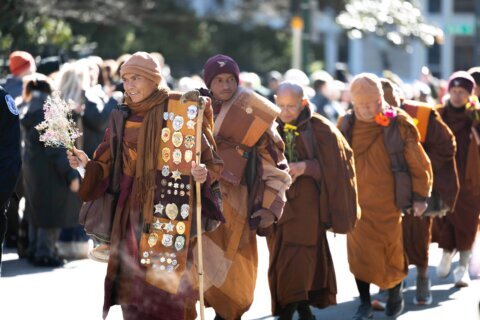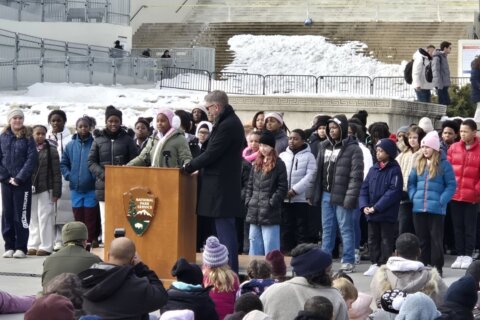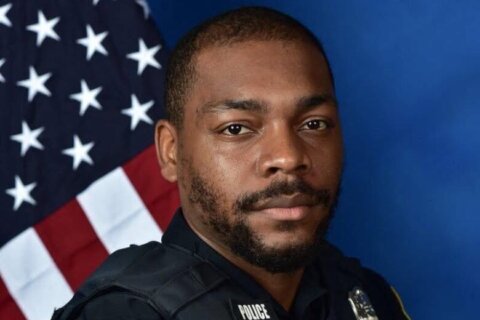D.C. is set to extend a pilot initiative where certain calls to police involving mental health emergencies are routed to city social workers who are better equipped to handle the situation.
The District’s Mental Health Emergency Dispatch Program, which was implemented by Mayor Bowser in May, was intended to reduce the number of police-involved shootings that occur when the subject of an emergency call may be mentally unstable.
Cleo Subido, interim director of the Office of Unified Communications, told WTOP Monday that the city is hiring more social workers for the program’s next phase, with a goal of having a third of all mental health calls directed to a dedicated mental health team by the third phase. The program will also expand its operating hours from 12 to 24 hours a day.
Reports of the extension was first reported by Bloomberg’s CityLab Friday.
“From June 1st to, I believe it was September, we transferred over 300 calls,” Subido said.
The calls being directed to the Department of Behavioral Health involve only calls in which the individual is not armed and does not pose a safety threat.
Subido estimates that as many as 40 individuals must be added to the ranks of the Department of Behavioral Health’s help line and community response teams to increase the city’s capacity to have 911 call takers redirect more calls to mental health counselors.
“We really hope this will end with better care, that’s what it’s about — better care,” said Subido.
When the program expands in January, not only will the capacity to redirect calls expand to round-the clock, but the type of events reported to 911 call takers eligible for a mental health counselor, instead of a police officer, will be expanded.
In the current phase of the pilot program, third party calls reported a case of mental distress in which the patient is not with the caller are handled by police. That will change under the program’s second phase expected to begin in January.
“The call volume we are limiting to those where we can actually speak to the patient or to someone with the patient,” said Subido. “If it’s a third party just passing by, we don’t send those to DBH. In phase 2, we will.”
The idea for the pilot first gained traction in the summer of 2020 as nationwide protests over the police killing of George Floyd in Minneapolis dominated the news. In the wake of the protests, the D.C. Council created a 20-member D.C. Police Reform Commission charged with proposing substantial changes in how policing takes place in the District.
Nearly a year later, in April 2021, the commission provided a full report and a set of 90 recommendations to the council titled “Decentering Police To Improve Public Safety.” It was from these recommendations that the change in handling mental health-related calls was put forward.
In a section titled ‘Meeting Crisis with Specialized Skill and Compassion,’ the commission report states:
“Relying mainly or exclusively on police as crisis responders unnecessarily puts both residents and officers at risk of harm. It is a fundamental misuse of law enforcement resources that leads to unnecessary contact with already over-policed and underserved communities, perpetuating fear and mistrust of police, while often leaving peoples’ needs unaddressed.
Behavioral health care professionals and other specialists, who operate from a trauma-informed, anti-racist, culturally and community competent perspective, should be the first resort and accompanied by police only when there is a significant risk to public safety. “
While about two of approximately 90 daily calls to 911 involving mental distress are currently redirected from police to mental health counselors, Subido said with added DBH personnel next year, the goal is to send as many as 30 calls a day to mental health professionals who will either provide resources by phone or dispatch a community response team.









